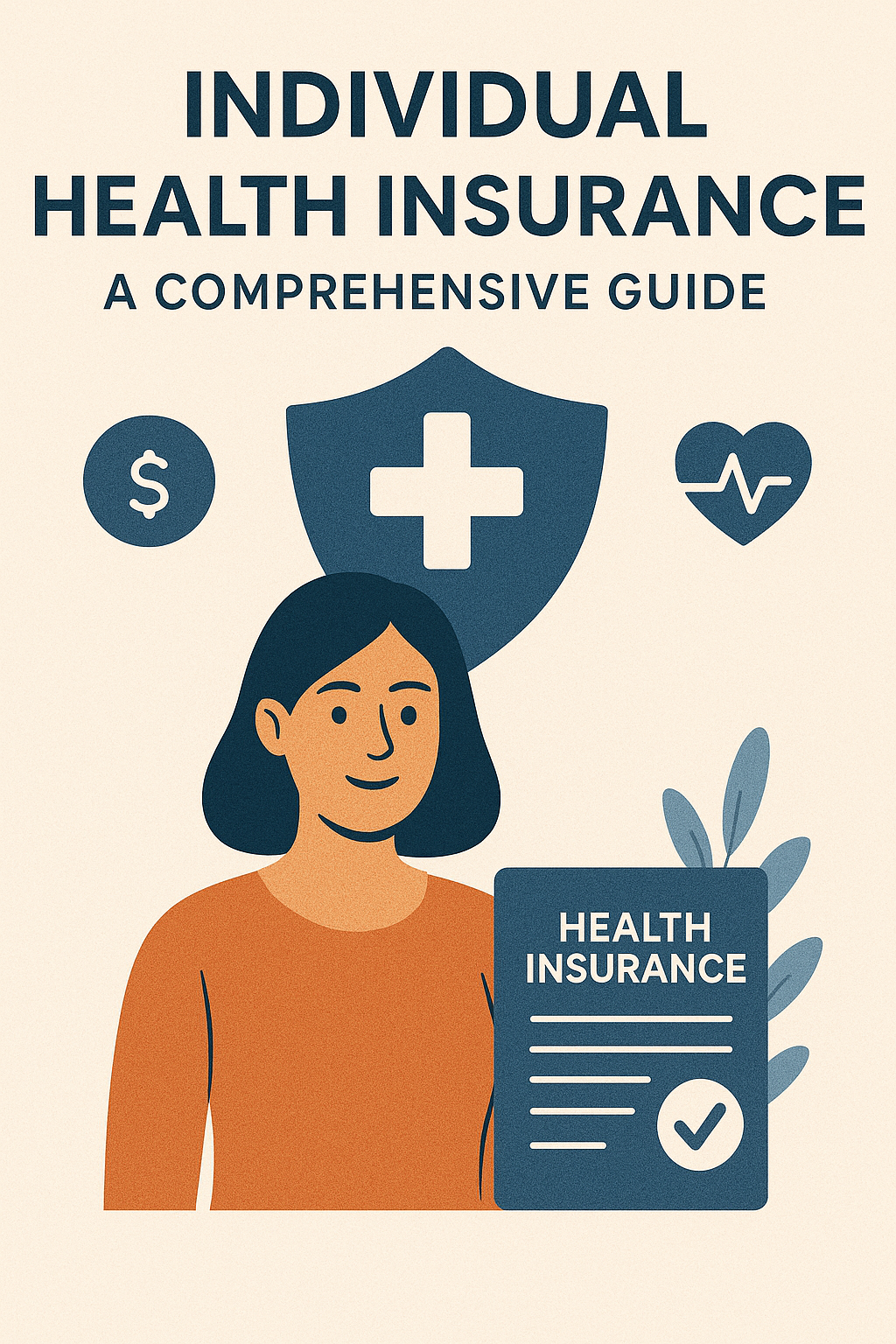Individual health insurance offers financial protection against medical expenses, ensuring access to quality healthcare without depleting personal savings.
What Is Individual Health Insurance?
Individual health insurance is a type of medical coverage purchased by an individual rather than being provided by an employer or a government program. It covers medical expenses such as doctor visits, hospital stays, prescription drugs, and preventive care, depending on the policy.
Importance of Individual Health Insurance
- Financial Security: Protects against high medical costs.
- Access to Quality Healthcare: Ensures timely medical treatment.
- Customizable Plans: Allows policyholders to choose coverage that suits their needs.
- Portability: Unlike employer-sponsored plans, it remains active regardless of job changes.
Key Aspects of Individual Health Insurance
1. Coverage Options
- Basic Health Plans: Cover essential healthcare services.
- Comprehensive Plans: Include hospitalization, outpatient care, and preventive services.
- Catastrophic Plans: Designed for emergencies and major illnesses.
2. Premiums and Deductibles
- Premium: Monthly payment for the insurance policy.
- Deductible: The amount paid out-of-pocket before insurance coverage starts.
3. Network Providers
- HMO (Health Maintenance Organization): Requires choosing a primary care physician and referrals for specialists.
- PPO (Preferred Provider Organization): Offers flexibility to see any doctor without referrals but at a higher cost.
- EPO (Exclusive Provider Organization): Covers only in-network providers except for emergencies.
4. Exclusions and Limitations
- Some plans may exclude pre-existing conditions.
- Cosmetic procedures and alternative treatments are usually not covered.
Benefits of Individual Health Insurance
- Flexibility in Choosing Coverage
- Continuity of Coverage Across Jobs
- Access to a Wide Range of Healthcare Services
- Tax Benefits (in some cases)
- Coverage for Pre-existing Conditions (in specific plans)
How to Choose the Right Individual Health Insurance Plan
- Assess Your Healthcare Needs: Consider medical history, lifestyle, and potential future needs.
- Compare Different Plans: Review coverage, premiums, and out-of-pocket costs.
- Check Provider Networks: Ensure your preferred doctors and hospitals are included.
- Read Policy Terms Carefully: Understand exclusions, deductibles, and co-pays.
- Look for Discounts and Subsidies: Government programs or employer assistance may reduce costs.
Common Mistakes to Avoid
- Not Comparing Plans: Choosing the first option without exploring alternatives.
- Ignoring the Fine Print: Overlooking exclusions and limitations.
- Underestimating Healthcare Needs: Selecting minimal coverage to save on premiums.
- Skipping Preventive Care: Missing out on covered check-ups and screenings.
- Failing to Review Annual Changes: Insurance terms and premiums may change yearly.
Recommended Resources
- Healthcare.gov: https://www.healthcare.gov – Official U.S. health insurance marketplace.
- National Association of Insurance Commissioners (NAIC): https://www.naic.org – Regulatory information on health insurance.
- MedlinePlus: https://medlineplus.gov – Reliable health information.
Future Trends in Individual Health Insurance
- Telemedicine Expansion: More policies are including virtual consultations.
- AI and Data Analytics: Improved risk assessment and personalized plans.
- Value-Based Healthcare: Emphasis on quality over quantity of services.
- Legislative Changes: Potential reforms affecting coverage options and costs.
FAQs
1. What is the difference between individual and group health insurance?
Group health insurance is provided by an employer, whereas individual health insurance is purchased by a person independently.
2. Can I get individual health insurance if I have a pre-existing condition?
Yes, under the Affordable Care Act (ACA), insurers cannot deny coverage based on pre-existing conditions.
3. How much does individual health insurance cost?
Costs vary based on factors such as age, location, coverage level, and insurer. On average, monthly premiums range from $300 to $600.
4. Can I switch individual health insurance plans?
Yes, you can change plans during the open enrollment period or after a qualifying life event (e.g., job loss, marriage).
5. Are prescription drugs covered in individual health insurance?
Most plans include prescription drug coverage, but the extent of coverage depends on the policy.
Conclusion
Individual health insurance is an essential financial safeguard, providing flexibility and security for medical expenses. Choosing the right plan requires careful consideration of coverage options, costs, and provider networks. Avoid common pitfalls and stay informed about industry trends to make the best healthcare decisions. Ready to explore your options? Compare individual health insurance plans today and secure your health and financial future.
Meta Description
Discover everything you need to know about individual health insurance, including benefits, coverage options, common mistakes, and future trends. Find the best plan today!


